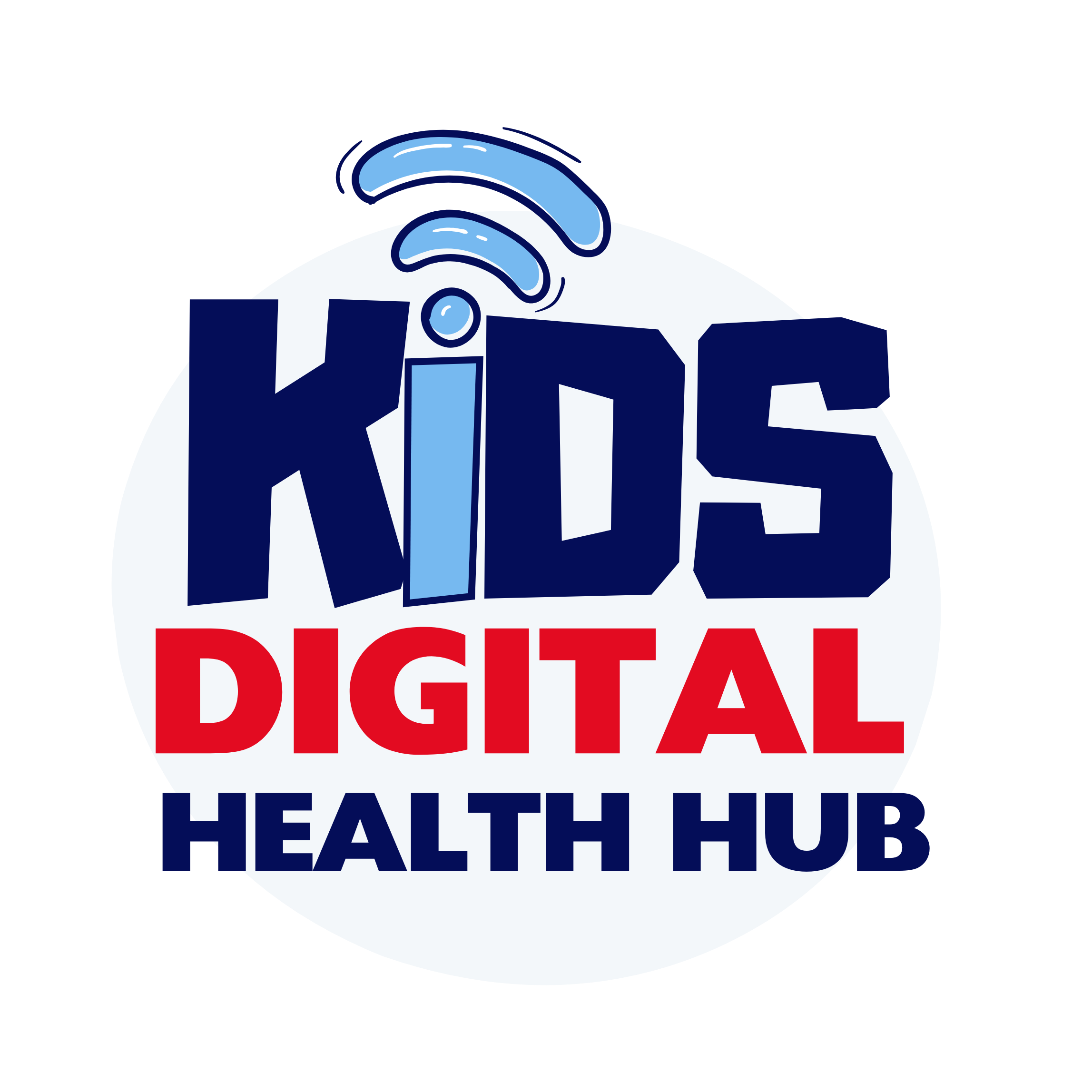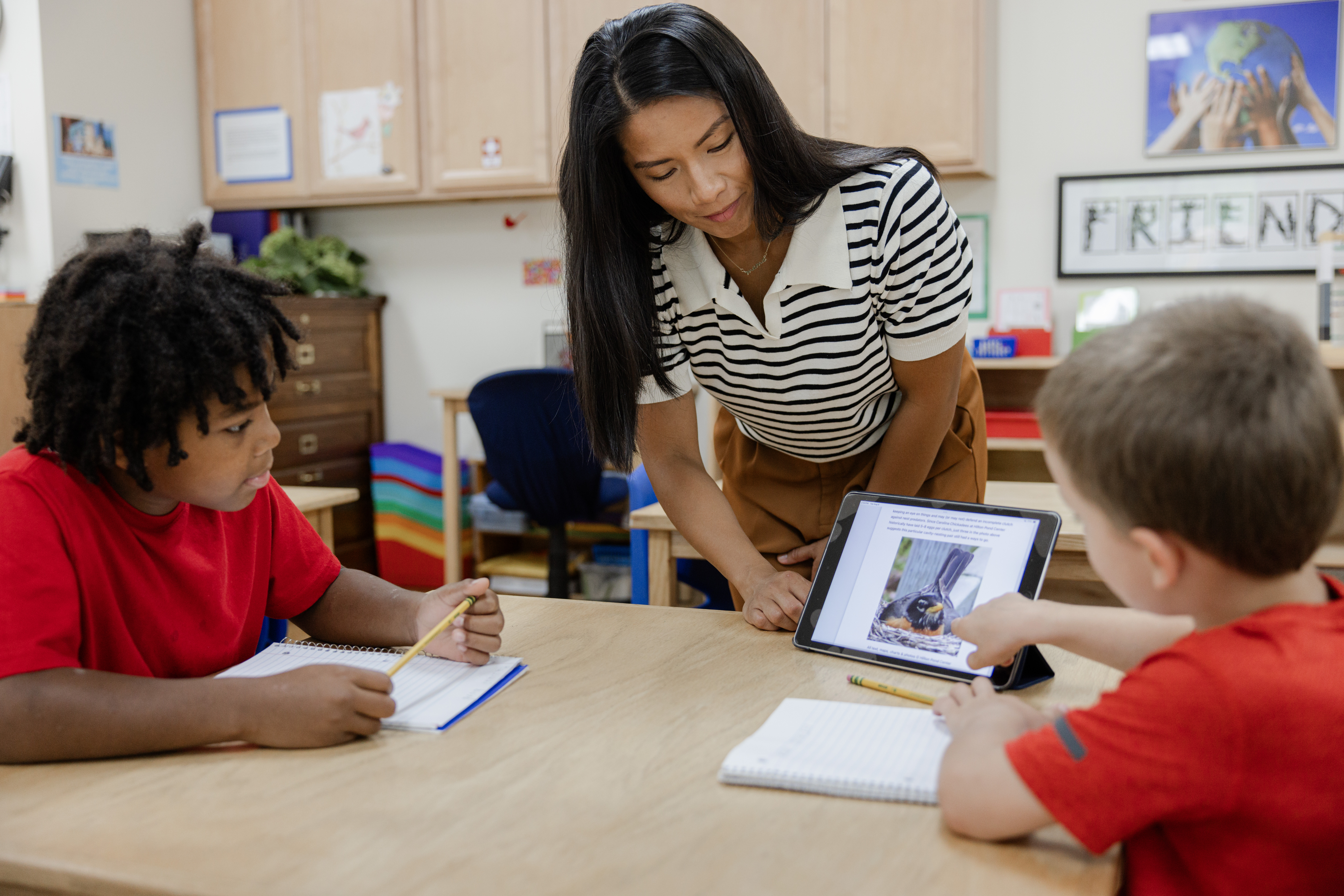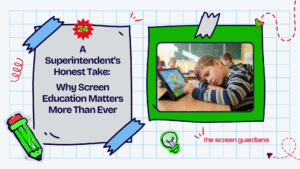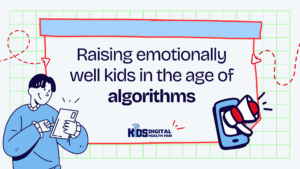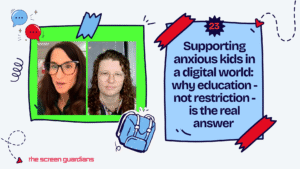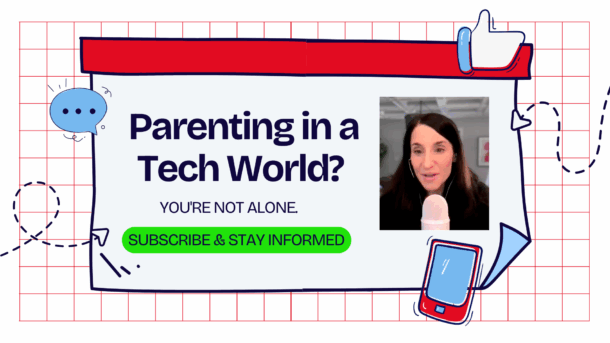Parenting in the digital age is complicated—messy, emotionally intense, often uncertain, and more than ever, essential. In an eye-opening episode of the Screen Guardians podcast, host Katie speaks with her long-time friend, businesswoman, and devoted mother Jenny Taylor, who shares a deeply personal, challenging, and ultimately redemptive story about her family’s experience with tween cyberbullying in middle school.
This isn’t just a cautionary tale; it’s a call to action. One that challenges all caregivers to stay informed, stay present, and stay connected as they raise kids in today’s tech-driven world.
Table of Contents
From Corporate Leader to Intentional Mom: Jenny’s Backstory
Jenny Taylor spent over 20 years climbing the ranks in corporate America, specializing in communications and PR. But that all changed when she became a mom—after a long battle with infertility.
“When I got pregnant, I knew I wanted to be very present. I couldn’t keep juggling 60-hour workweeks and also show up in the way I wanted to for my daughter… so I changed everything.”
That decision led her into entrepreneurship, working from home, starting and selling businesses—all while intentionally designing a life centered on active motherhood.
The Moment Everything Changed: When Digital Drama Turned to Real Hurt
Jenny’s daughter, Charlotte, was in 6th grade—an outgoing, kind, well-liked kid. No red flags. No history of behavioral or friendship issues. Just a normal girl entering the world of smartphones and Snapchat.
But one small, seemingly innocent comment—telling a friend that she thought an 8th-grade boy was “cute”—ignited an unexpected and dangerous chain of events.
“The boy had a girlfriend in 8th grade, and that girlfriend and her best friend were known as the school’s ‘mean girls.’ Charlotte became a target, just like that.”
The bullying escalated—quickly.
- Isolating texts and group messages behind her back
- A Snapchat “Charlotte Hater” group
- On-campus intimidation and physical targeting
- Friends abandoning her out of fear they’d be next
Charlotte suddenly found herself completely alone, targeted, and confused.
“Even her own friends—girls who loved her—began avoiding her. The fear of becoming the target was greater than the loyalty they felt.”
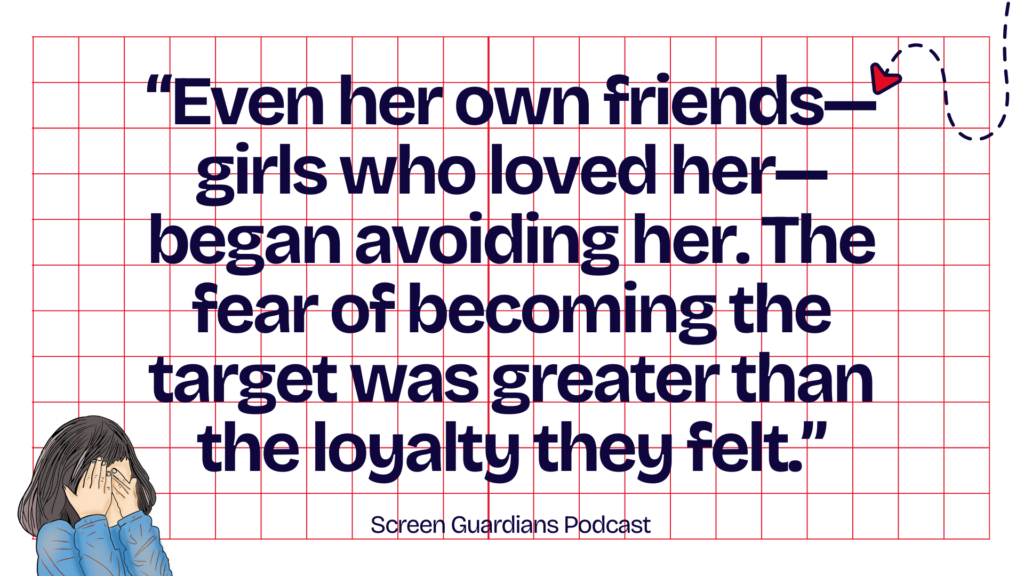
How They Found Out: A Face She Couldn’t Hide
Jenny had a gut feeling that something wasn’t right when her daughter’s demeanor changed during a basketball game.
“I just looked at her face while she was on the phone, and I knew. I asked, ‘What’s going on?’ and that’s when she started opening up.”
From there, Jenny and her husband began piecing everything together.
Thanks to:
- A parent whose daughter’s phone had been taken away and not wiped.
- Another mother who pretended to be her son in a text that exposed the group’s behavior.
- Screenshots and saved messages before they could be deleted.
They learned the full scope of what Charlotte was enduring—and it was devastating.
When School Systems Fail, Parents Must Step In
Armed with undeniable proof, the parents approached Charlotte’s school expecting accountability and protection.
“The principal played it down. The school counselor literally told Charlotte to keep her head down and wait for someone else to become the target.”
What’s worse? One of the parents of the bullies was an employee at the school—further complicating the administration’s response.
Eventually, the parents involved the county sheriff, who revealed this was actually one of the most severe cases of digital bullying they had ever seen. Though charges weren’t pursued, it was a powerful affirmation that Jenny and her husband weren’t overreacting.
Their Approach: Healing, Coaching, Changing Schools
Despite the pain, Charlotte finished the school year.
“We wanted her to learn she could do hard things,” Jenny said. “But we also wanted her emotionally safe.”
They eventually switched schools and hired a family coach to build back Charlotte’s trust, confidence, and resilience.
“Even now, she’s still healing… it was her friends who turned on her. That messes with your sense of self-worth.”
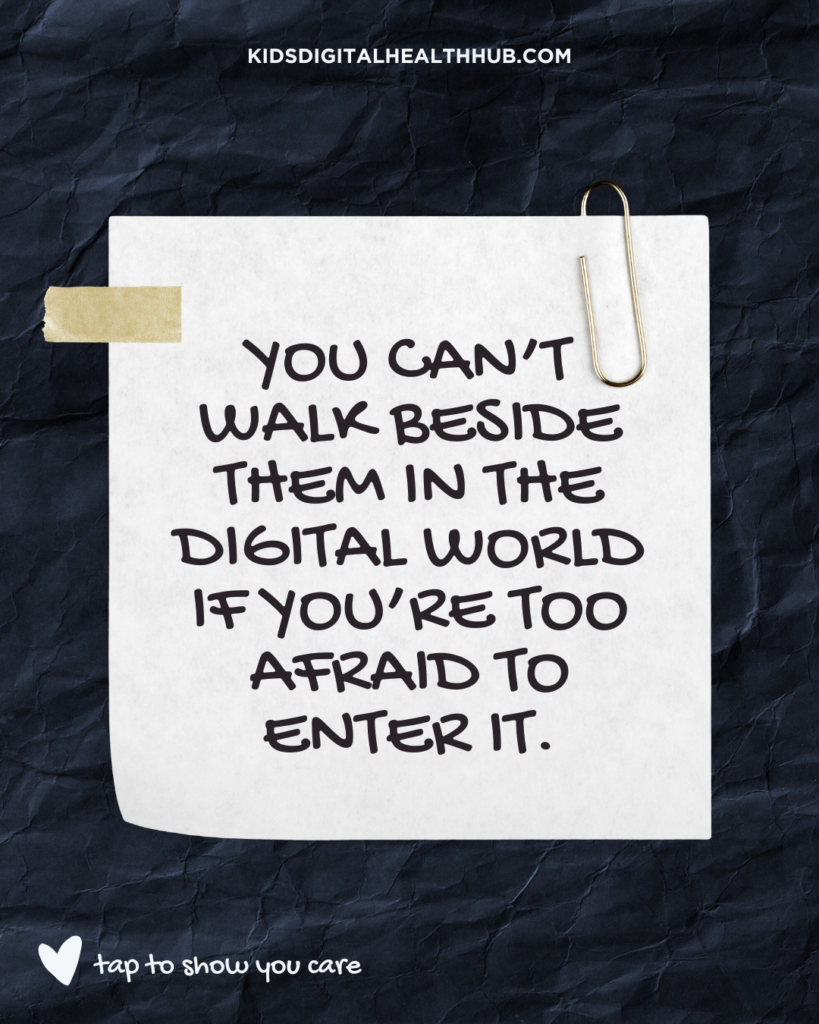
Key Lessons for Parents: Raising Kids in a Digital Jungle
Jenny’s story is heart-wrenching—but powerful. She wants parents to understand the layered reality facing kids growing up online:
1. Good Kids Aren’t Immune
“Charlotte was loved, confident, and had no behavioral issues. If it can happen to her, it can happen to anyone.”
2. Bullying Isn’t What It Used to Be
With group chats, disappearing messages on Snapchat, and social status warfare, bullying now follows kids home—it’s 24/7.
3. There Are Different Parenting Camps
Some parents restrict. Some are hands-off. Jenny believes in informed, present, and conversation-based parenting.
4. Friendship Shifts Can Signal Anxiety
If your child’s friendships suddenly change or behaviors feel “off,” don’t dismiss the signs. Dig deeper.
5. Technology Exposure Is Inevitable
“Even with restrictions, Charlotte still received awful messages—nude images, toxic invites, etc. It’s not IF, it’s WHEN.”
Being involved, not isolated, from your child’s digital life is crucial. Total tech elimination can often alienate them. Instead, Jenny suggests guiding them:
- Understand how platforms work
- Talk about what’s appropriate vs. harmful
- Review messages TOGETHER—make it safe, not punitive
- Keep an open-door policy for anything
Where They Are Now: Redemption, but Still Healing
In a touching update, some of the same girls who once bullied Charlotte reached back out and apologized.
“They admitted they were going through hard things and took it out on Charlotte. While that doesn’t erase the pain, it helped bring some healing.”
Charlotte continues working with a coach, learning healthy boundaries, and rebuilding her confidence.
Final Takeaway: “We Don’t Have the Option to Opt Out”
Jenny’s message to parents?
“This isn’t going away. You may want to bury your head in the sand—but we cannot afford to be passive. Social media is part of their world. We either help them navigate it safely, or we leave them vulnerable to navigate it alone.”
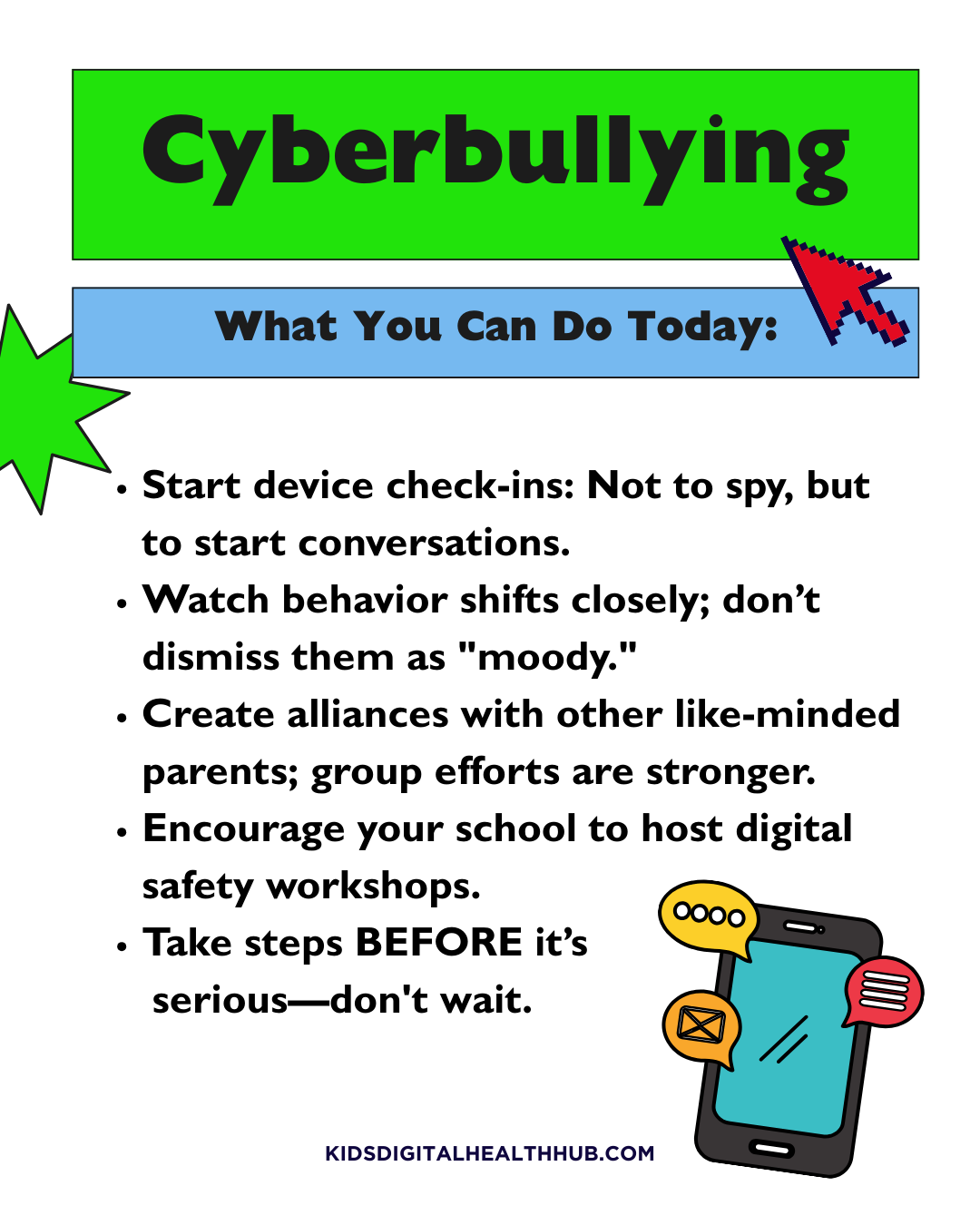
What You Can Do Today:
- Start device check-ins: Not to spy, but to start conversations.
- Watch behavior shifts closely; don’t dismiss them as “moody.”
- Create alliances with other like-minded parents; group efforts are stronger.
- Encourage your school to host digital safety workshops.
- Take steps BEFORE it’s serious—don’t wait.
Let’s Be Better Screen Guardians—Together
At Kids Digital Health Hub, our mission is to support parents like Jenny—and kids like Charlotte—by providing tools, stories, and expert insights to help families thrive online and offline.
💡 Subscribe to the Screen Guardians podcast wherever you listen to podcasts
💬 Join our parent community discussions on Instagram
Because protecting our kids in the digital world doesn’t start with restriction—it starts with connection.
Have a story to share or a question you’d like us to explore on the blog? Reach out at hello@kidsdigitalhealthhub.com.
You may also enjoy reading: Protecting and Preserving Childhood: A Mission Born from Experience
